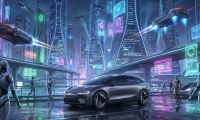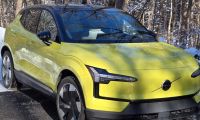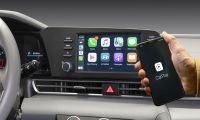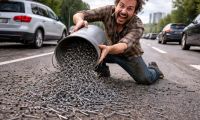Different manufacturers of "pure" battery electric cars, both traditional and newcomers, have adopted different production strategies regarding their electric motors, in order to be more profitable, more competitive and also to differentiate themselves from the competition. For instance, while Tesla manufactures most of the components of the traction system of its electric cars internally, Rivian went the opposite direction, resorting to an external supplier in order to outsource motors for its vehicles. In an intermediate situation, those brands that have initially resorted to third parties in order to put a competent product on the market, will eventually opt for internal production in the future.
NEWS: Rivian is one of few pure EV makers that outsourced its electric motors - IHS Markithttps://t.co/dOGniexJAv
— Sawyer Merritt (@SawyerMerritt) March 20, 2022
IHS Markit, a London consultancy group specialized in information services, carried out a study in which they analyzed the different strategies for the supply of electric motors by OEM manufacturers. This is an especially important decision at a time when the development and production of electric cars requires that the product be on the market as soon as possible and when everyone needs it, in order to differentiate from the competition in terms of efficiency; while at the same time be able to remain competitive.
According to the conclusions drawn from this report, Tesla - surely the most recognized electric car manufacturer in the world - sees in electric propulsion units a vital element for achieving maximum efficiency and also as a potential source to achieve a maximum competitive advantage. An example of this can be found in the new Tesla Model S and Model X Plaid electric motors, which feature rotors encased in carbon coverings: they are basically wounded on the copper rotor at high pressure, compressing them. This technology was quietly developed and eventually brought into full production within the company, giving the Model S and Model X Plaid variants a number of key advantages over their competitors.

Another startup that is following a similar strategy, by taking as much care as possible of its motors - to ensure they are as compact and efficient as possible - is Lucid Motors. According to its CEO, Peter Rawlinson, its internal super-compact transmission technology is basically a very dense system, with the highest volumetric power available today. This miniature electric powertrain frees up additional space to fit the Lucid Air's 6,600 battery cells.
However, this strategy is not shared by some traditional manufacturers, such as General Motors, which has chosen to purchase its electric transmission systems from top-tier industry suppliers such as Bosch. Its strategy is to put a competitive product on the market, taking advantage of the reduction in development processes - allowed by using an external supplier - although with the idea of gaining time in order to implement its own solutions in the near future.
In this regard, the report highlights a newly created manufacturer that is torn between both solutions. Rivian is alone among the start-up manufacturers that have chosen not to develop their own electric motors: initially, the firm completely outsourced its electric drive units, which allowed it to accelerate the launch of its products. Still, it's worth noting that Rivian is also developing its own electric motors internally, which means it's likely to end up adopting an in-house strategy in the near future, similar to that of rivals like Tesla and Lucid.
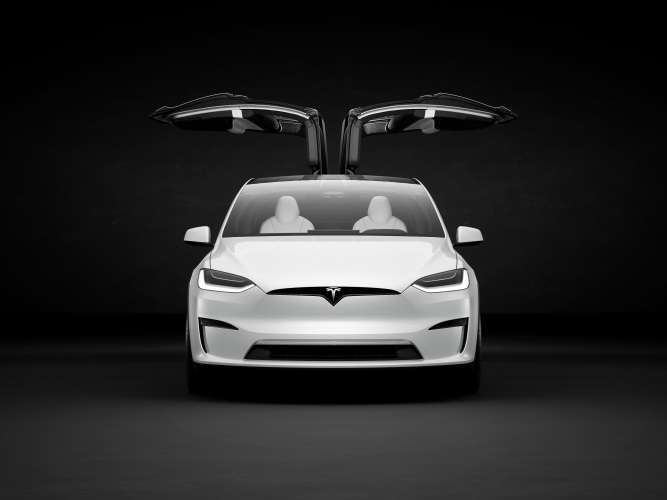
Consequently IHS Markit notes that the internal development strategy will be the one most likely to prevail in the next decade. “We forecast a steady shift toward electric drive insourcing in the coming decade driven in part by the US OEMs. However, there will be many situations where outsourcing continues to make sense. For example, Rivian has initially fully outsourced its electric drive which helped accelerate its first product launch, while subsequently developing its own. BorgWarner’s recently announced acquisition of motor supplier Santroll shows Tier 1s still see significant volume growth in this space. Carmakers may never insource electric drives completely. As mature as the internal combustion engine is, that industry is 90% insourced, while 10% of engines are externally sourced,” IHS Markit noted.
In this scenario Rivian will try to increase its deliveries based on this initial strategy, but has already shown signs that it is willing to adapt to the market. In the latest report to the company's shareholders, and as nickel prices soared amid the war in Ukraine, Rivian made a major announcement regarding its electric delivery vans that will be delivered to Amazon: the development of a new battery pack with lithium iron phosphate (LFP) cells. This is an important move in its business strategy, as Amazon's delivery vans will likely account for a substantial part of Rivian's production in the near future.
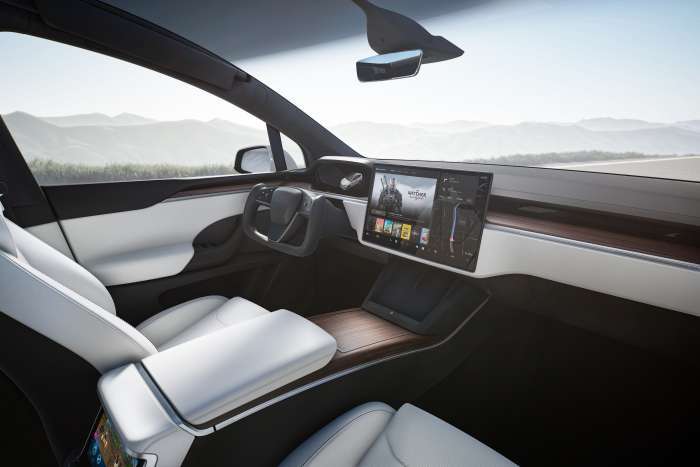
Rivian does not intend to implement this technology in all units, though, as it will use batteries with cells with a high nickel content (such as NCM cells); but it will also use batteries with lithium-iron-phosphate cells, whose chemical composition completely dispenses with nickel and cobalt. Following a strategy similar to that of Tesla, it will also end up implementing an LFP battery in the Standard versions of the Rivian R1T and R1S, which will offer a more limited range and a more affordable entry price. According to Rivian, the Standard versions of its two electric models will offer about 260 miles (420 kilometers) of range and will be combined exclusively with the configuration of two motors.
You can check IHS Markit full report on this link.
All images courtesy of Tesla Inc.
Nico Caballero is the VP of Finance of Cogency Power, specializing in solar energy. He also holds a Diploma in Electric Cars from Delft University of Technology in the Netherlands, and enjoys doing research about Tesla and EV batteries. He can be reached at @NicoTorqueNews on Twitter. Nico covers Tesla and electric vehicle latest happenings at Torque News.








